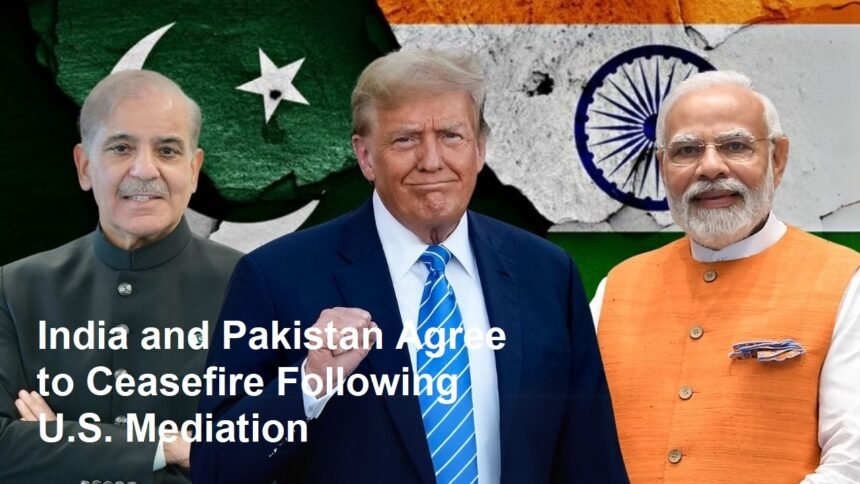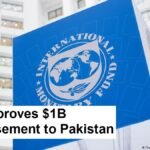On May 10, 2025, a significant development unfolded in the long-standing conflict between India and Pakistan, as both nations agreed to an immediate ceasefire following intensive mediation efforts led by the United States. Former U.S. President Donald Trump announced the ceasefire, taking credit for the diplomatic breakthrough that temporarily halted the worst fighting between the two nuclear-armed neighbors in decades. This announcement marked a hopeful moment in a conflict that has persisted for over seven decades, rooted primarily in territorial disputes over the Kashmir region.
The ceasefire agreement came after a night of intense talks mediated by U.S. officials, including Secretary of State Marco Rubio and Vice President J.D. Vance, who engaged with senior representatives from both India and Pakistan. Trump publicly declared the success of these talks on his social media platform, stating, “After a long night of talks mediated by the United States, I am pleased to announce that India and Pakistan have agreed to a full and immediate cease-fire.” This statement was quickly followed by confirmation from Pakistan’s Foreign Minister Ishaq Dar, who posted on X (formerly Twitter), “Pakistan and India have agreed to a cease-fire with immediate effect.”
Despite the celebratory tone of the announcement, the reactions from the two countries revealed some nuances. India’s Ministry of Information emphasized that the ceasefire agreement was worked out “directly between the two countries,” downplaying the extent of U.S. involvement and contradicting Trump’s claim of American mediation. India’s Foreign Secretary Vikram Misri confirmed that both parties would stop all firing and military action from 5 p.m. Indian Standard Time, but also accused Pakistan of repeatedly violating the ceasefire agreement shortly after it took effect. Explosions were reported in both Indian- and Pakistani-administered parts of Kashmir, raising questions about the durability of the ceasefire.
On the other hand, Pakistani officials expressed gratitude towards the United States and President Trump for their proactive role in facilitating the ceasefire. Pakistani Prime Minister Shehbaz Sharif publicly thanked Trump for his leadership, highlighting the importance of international support in resolving the conflict. A Pakistani source familiar with the negotiations told news outlets that the U.S., and Rubio in particular, played an instrumental role in striking the deal, underscoring the significance of American diplomatic engagement in South Asia.
The India-Pakistan conflict, especially over Kashmir, has been a source of tension and violence since the partition of British India in 1947. The two countries have fought multiple wars and engaged in numerous skirmishes, with the Kashmir region remaining a flashpoint. Both nations possess nuclear weapons, which adds a layer of complexity and urgency to any efforts to de-escalate hostilities. The recent escalation in fighting had raised international concerns about the potential for a broader conflict, making the ceasefire announcement a critical development.
The ceasefire is intended to halt hostilities and create a conducive environment for further dialogue on a broad set of issues between India and Pakistan. The U.S. mediation aimed to open channels for negotiations that could address underlying disputes and reduce the risk of future clashes. The involvement of high-level U.S. officials signaled Washington’s commitment to promoting peace and stability in the region, which is vital for global security and economic interests.
However, the initial reports of ceasefire violations from both sides highlight the fragility of the agreement. The history of India-Pakistan ceasefires has been marked by frequent breaches and mutual accusations, reflecting deep-seated mistrust and unresolved grievances. The success of this ceasefire will depend on the willingness of both parties to adhere to the terms and engage in meaningful dialogue to address contentious issues.
In conclusion, the announcement on May 10, 2025, that India and Pakistan agreed to an immediate ceasefire following U.S.-mediated talks represents a hopeful but cautious step towards peace in a region long plagued by conflict. While former President Donald Trump and U.S. officials played a visible role in brokering the deal, the differing narratives from India and Pakistan underscore the complexities involved. The ceasefire offers a temporary respite from violence and an opportunity for renewed diplomatic efforts, but its longevity remains uncertain amid ongoing tensions. The coming days and weeks will be crucial in determining whether this ceasefire can hold and pave the way for a more stable and peaceful South Asia.









